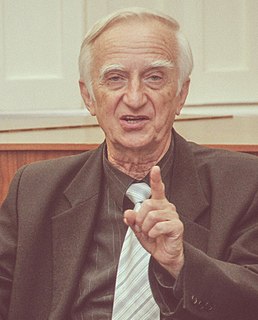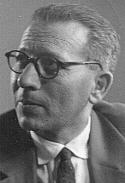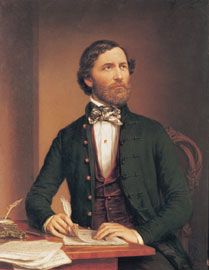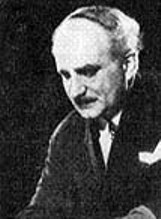 W
WKornél Ábrányi was a Hungarian pianist, music writer and theorist, and composer. He was born in Szentgyörgyábrány. A pupil of Frédéric Chopin, and a close friend of Franz Liszt, whose music he championed, Ábrányi chiefly wrote music for piano, but also composed chamber music, choral works, and lieder. He began teaching at the Franz Liszt Academy of Music at its founding in 1875 and became its Secretary.
 W
WVincent Adler was a Hungarian composer and pianist.
 W
WKároly Aggházy, or Aggházy Károly [ˈɒkhaːzi ˈkaːroj] in Hungarian order was a Hungarian piano virtuoso and composer.
 W
WSigismund Bachrich, aka Sigmund Bachrich or Siegmund Bachrich, was a Hungarian composer, violinist, and violist of Jewish origin.
 W
WÁrpád Balázs is a classical music composer. He studied composition in Budapest and Rome, and presented a series about classical music on Hungarian television.
 W
WGábor Darvas was a Hungarian composer and musicologist. He was one of the first Hungarian composers to work in the field of electronic music. As a musicologist, his interest was primarily in music of the 15th and 16th centuries.
 W
WKarl Doppler was a Hungarian flute virtuoso, conductor, music director, composer. He was the younger brother of the composer Franz Doppler and father of the composer Árpád Doppler.
 W
WBéni Egressy was a Hungarian composer, librettist, translator and actor. He created a number of popular melodic compositions, including the one to Mihály Vörösmarty's patriotic poem Szózat. He also authored the librettos of the operas Hunyadi László and Bánk bán by Ferenc Erkel.
 W
WMihály Erdélyi was a Hungarian composer, lyricist, actor, and producer, particularly prolific in the interwar period. Erdélyi was born in Szeged in 1895 and began a career as an actor then a stage producer, but became most famous for his operettas, including Csókos regiment (1932), Fehérvári huszárok (1933), A csavargólány (1936), Sárgapitykés közlegény (1937), A zimberi-zombori szépasszony (1939), Sárgarigófészek (1940), Vedd le a kalapod a honvéd előtt (1942), and A két kapitány (1943). Many of his songs have entered the Hungarian musical canon as folk music, often without an awareness of the original composer.
 W
WSándor Erkel was a Hungarian composer, conductor and director of the Hungarian State Opera.
 W
WImre Farkas was a 19th-century Hungarian musician, most famous for his contribution for the popular Nóta style.
 W
WCount Leó Festetics de Tolna, was a patron of music and an amateur composer, from a prominent Croatian Hungarian family, Festetics.
 W
WLóránd Fráter (1872-1930) was a Hungarian composer of Nóta despite not being of the Romani people. He was also a politician.
 W
WJános Fusz, aged 41, was a Hungarian composer. Although he composed in many different genres, he was highly popular during his lifetime for his many songs, earning recognition from Beethoven among others.
 W
WJoseph Gungl, correct: Josef Gung'l, was an Austrian composer, bandmaster, and conductor. He was soprano Virginia Naumann-Gungl's father.
 W
WFrigyes Hidas was a Hungarian composer.
 W
WZoltán Horusitzky was a Hungarian composer. A pupil of Kodály, from 1938 Horusitzky was editor of A zene, a journal promoting the Magyar Korus movement.
 W
WVictor Jacobi was a Hungarian operetta composer.
 W
WZoltán Jeney was a Hungarian composer.
 W
WPál Kadosa was a pianist and Hungarian composer of the post-Bartók generation. His early style was influenced by Hungarian folklore while his later works were more toward Hindemith and expressively forceful idioms. He was born in Levice. He studied at the national Hungarian Royal Academy of Music under Zoltán Székely and Zoltán Kodály. He was appointed to the faculty of the Fodor School in 1927 where he taught until 1943 when he was forced out due to wartime political issues.
 W
WHans von Koessler was a German composer, conductor and music teacher. In Hungary, where he worked for 26 years, he was known as János Koessler.
 W
WIzabella Kuliffay was a Hungarian pianist and composer. She was born in Pest, and studied music at the National Conservatory in Budapest from 1877–79, and the Budapest Academy of Music from 1879–83, with teachers including Kornel Abranyi and Gyula Erkel. Her work was also heavily influenced by Franz Liszt.
 W
WGábor Mátray was a Hungarian librarian and composer.
 W
WMihály Mosonyi was a Hungarian composer. Born Michael Brand, he changed his name to Mosonyi in honor of the district of Moson, with Mihály being the Hungarian equivalent of "Michael". Like many of his peers, he was interested in creating a Hungarian musical style.
 W
WEde Reményi or Eduard Reményi was a Hungarian violinist and composer. His birth date is disputed, and variously given from 1828-1830.
 W
WLászló Sáry is a Hungarian composer and pianist. In the 1970s he began composing in a minimal style. He received recognition in 2002 for having created the scores for numerous animated works and was awarded a prize by the Kecskemét Animation Film Festival Jury for Best Music.
 W
WGyörgy Selmeczi is an Hungarian composer, conductor, opera director, and pianist.
 W
WAlbert Siklós was a Hungarian composer.
 W
WSándor Szokolay was a Hungarian composer and professor of the Liszt Ferenc Academy, Budapest.
 W
WErzsébet Szőnyi, also Erzsébet Szilágyi, was a Hungarian composer and music teacher. Her works encompass symphonic compositions, chamber music works, art songs, and oratorios. She also wrote numerous stage works including eight operas.
 W
WMihály Víg is a Hungarian composer, poet, songwriter, guitarist and singer. He is the co-founder of bands Trabant (1980–1986) and Balaton (1979–present), and known for his musical and acting collaborations with film director Béla Tarr.
 W
WJosef Waldbauer (1861–1920) was an Austro-Hungarian composer, violinist and music educator.